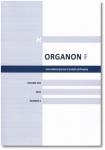Rethinking Slurs: A Case Against Neutral Counterparts and the Introduction of Referential Flexibility
Rethinking Slurs: A Case Against Neutral Counterparts and the Introduction of Referential Flexibility
Author(s): Alice DamirjianSubject(s): Lexis, Semantics, Philosophy of Language
Published by: Filozofický ústav SAV
Keywords: neutral counterparts; pejorative language; philosophy of language; semantics; slurs;
Summary/Abstract: Slurs are pejorative expressions that derogate individuals or groups on the basis of their gender, race, nationality, religion, sexual orientation and so forth. In the constantly growing literature on slurs, it has become customary to appeal to so-called “neutral counterparts” for explaining the extension and truth-conditional content of slurring terms. More precisely, it is commonly assumed that every slur shares its extension and literal content with a non-evaluative counterpart term. I think this assumption is unwarranted and, in this paper, I shall present two arguments against it. (i) A careful comparison of slurs with complex or thick group-referencing pejoratives lacking neutral counterparts shows that these are in fact very hard to distinguish. (ii) Slurs lack the referential stability of their alleged neutral counterparts, which suggests that they are not coreferential. Developing (ii) will involve introducing a new concept which I regard as essential for understanding how slurs behave in natural language: referential flexibility. I shall support my claims by looking at historical and current ways in which slurs and other pejorative terms are used, and I shall argue that both etymological data and new empirical data support the conclusion that the assumption of neutral counterparts not only is unwarranted but obscures our understanding of what slurs are, and what speakers do with them.
Journal: Organon F
- Issue Year: 28/2021
- Issue No: 3
- Page Range: 650-671
- Page Count: 22
- Language: English

